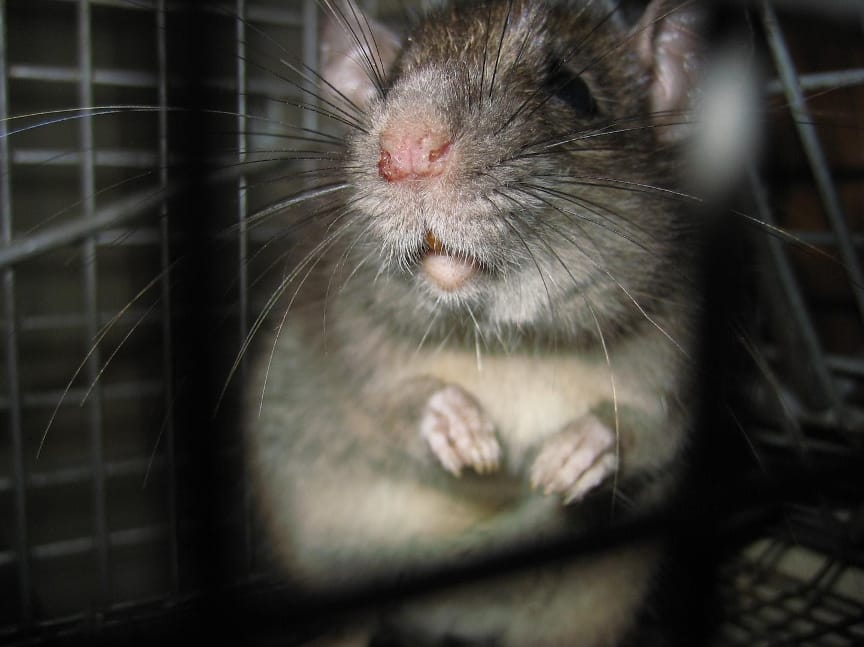
Life itself involves the interaction and co-dependence between species – and humans are no exception! Just like we depend on plants and animals for our food, clothing, and just about anything else, certain animal species have also evolved to depend on us. From tiny insects to large mammals like raccoons, they have learned proximity to humans means easier access to food and shelter. However, when these unwelcome guests get into homes, they cause innumerable damages. In this post, we explore some of the most destructive home pests.

- Rats
These nasty vermin need no introduction. They can damage plastic or metal pipes, wooden beams and joints, and even soft concrete. Not to mention chewing on electrical wires that may result in short circuits or even house fires. The incisors of rats grow throughout their life. That’s why they incessantly need to chew on objects to keep their incisors’length in check.
Aside from the structural damage they may cause, rats are also notorious for contaminating food sources with their droppings and urine, exposing homeowners to countless diseases like hantavirus. That’s why it is so important to find a rat control professional for help if you are dealing with an infestation.
- Termites
Though small-sized, termites are perhaps the most destructive home pest. According to the National Pest Management Association, they cause over $5 billion of property damage in the United States annually.
Termites – especially subterranean termites – are notorious for eating wood. But what they’re mostly after is the cellulose found in the cell walls of wood from which they derive nutrition to feed their ever-growing colony.
This might result in damage to the wood inside your house as well as the wood around your windows and doors. When they feed on load-bearing wood like in the foundation or ceiling, their actions will weaken the structural integrity of your home.
- Birds
The cutesy nature of birds serves as a veneer to their destructive prowess. Most notable is their droppings. Bird droppings are highly acidic. This means they can decompose roof tar and shingles on your roof, allowing moisture to seep in. Their droppings on your car or around your property lower the aesthetic appeal of your home, not to mention the problems associated with attic damage caused by birds.
Furthermore, their flying prowess gives them the ability to make their nests where they shouldn’t. A nest in your eaves trough will cause stagnant water that will breed insects. A nest in the chimney blocks the outwards movement of smoke and carbon monoxide, sending them back inside. Because nests are flammable, a nest in the chimney is a potential fire hazard.
- Raccoons
Raccoons are well-known for their proclivity to reside in attics, crawlspaces, and chimneys. As expert climbers with dexterous fingers, they commonly find their way in attics, and they cause lots of damages.
Once they gain entrance, their first task is to build a nest. While they might bring in foreign materials, a bulk of the building materials will be gotten from the attic. This means they may rip apart insulation, drywall, pipes, wood, wires, and more. While damaged insulation reduces the heating efficiency of your home, a damaged wire exposes your home to a potential fire hazard.
What’s more, their droppings are a breeding ground for various diseases. Not to mention the horrible odor you might have to put up with.
- Squirrels
Do not be deceived by the endearing portrayal of squirrels in Disney movies, squirrels are one of the most destructive pests in the United States. The Washington Post reported in 2015 that squirrels were responsible for about 20% of all power outages!
In seeking to build nests, squirrels can cause significant damage by chewing through the siding or underneath the eaves to gain access. Furthermore, they will rip off the insulation, gnaw on wood, paper, wires, and anything else they can lay their teeth on. And this would not stop anytime soon because squirrels have to keep chewing to keep the length of their incisor in check.
Squirrels can also damage the landscape and decimate the fruits, vegetables, and crops in your garden.
Advertise with the mоѕt vіѕіtеd nеwѕ ѕіtе іn Antigua!
We offer fully customizable and flexible digital marketing packages.
Contact us at [email protected]
















